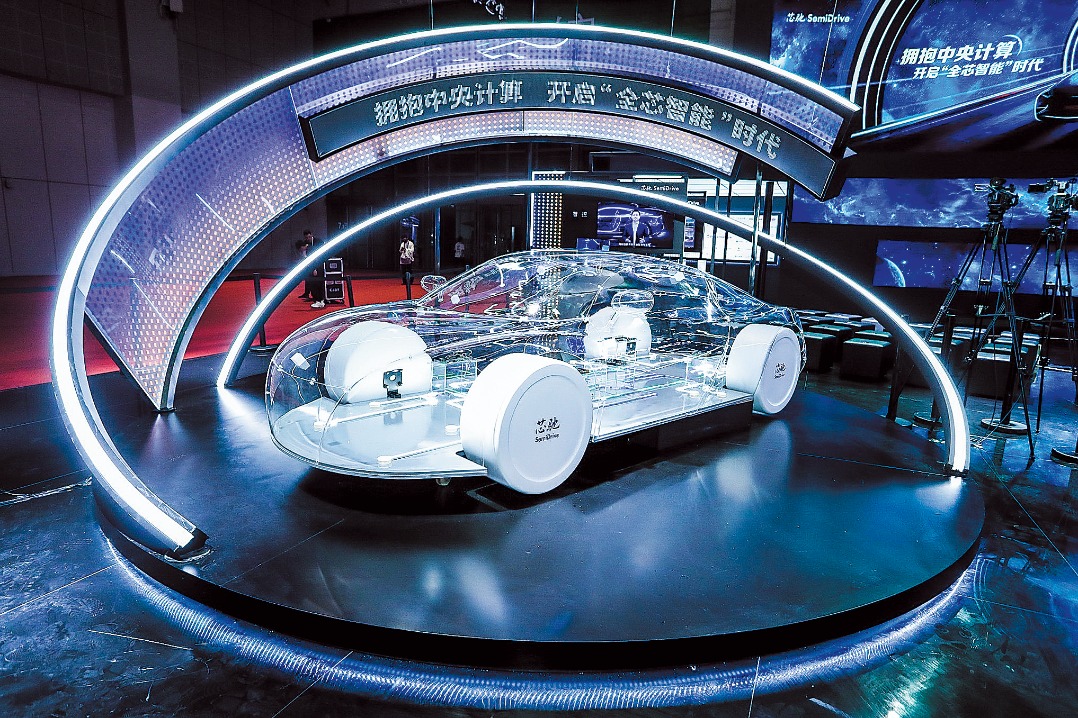China leading in capacity and innovation

Q3 AI and digitalization are rapidly transforming industries across the globe. How are your China operations incorporating these technologies to boost efficiency, improve customer experiences, or unlock new revenue streams in light of the country's push for "new quality productive forces"?
CHEN: China has evolved from a leader in capacity to a leader in capacity and innovation. AI will play an important role in accelerating the transformation.
At Syensqo, we have a digital plan that relies strongly on the adoption of artificial intelligence as one of the levels to increase productivity, innovate more and identify new ideas. We see tremendous opportunities for using AI to advance innovation. AI enables engineers in the labs and in the plant to look at bigger and more complex scientific or mathematical problems, and to bring up solutions which are more universal and have a bigger impact.
It's absolutely clear to us that, more and more, we need to have AI as a partner for our researchers. It is not a replacement, but a partner for our researchers. And this is accelerating strongly in Syensqo China research and innovation center where we have utilized AI to create modular tools for analysis, testing, quality control and product solutions optimization. We are investing in an Al laboratory in the research and innovation center in Shanghai.
XIA: We see opportunities from AI integration across various facets of our operations. We are incorporating AI to refine our R&D processes, optimize supply chain logistics, and enhance customer service experiences. Our digital tools, like the energy management system DEnMS, utilize smart sensors and AI analytics to monitor energy metrics across 80 percent of our Chinese production sites, driving energy efficiency and cost reduction while supporting China's dual-carbon goals.
For customer experiences, platforms like COATINO for the coating and ink industries provide formulators with tailored AI-driven tools and resources, facilitating efficient and informed decision-making. Internally, our secure GPT-based AI tools allow employees to automate daily tasks, boosting productivity while safeguarding intellectual property.
MACHADO: AI technology is transforming industries globally, and Suzano is already exploring the integration of AI into our operations to enhance efficiency, optimize supply chains, and improve customer engagement. For instance, Suzano developed Tetrys, which is an AI tool to determine the right seedling clones to be planted in every specific region where we operate, to ensure higher productivity, less use of inputs and chemicals, as well as protect the forest from pests and diseases.
We also use geospatial intelligence products for yield prediction, water resource and risk management, carbon measurement and verification, forest certification, and supply chain optimization and traceability. But there is so much more yet to be explored and China has a lot to offer. China's rapid advancements in AI and other breakthrough technologies are impressive. We are keen to learn from China and bring the technologies that China has been developing to our operations not only in China, but also in other regions.
ZHAO: Astellas is leveraging artificial intelligence and digital technologies to optimize R&D and patient services, adhering to a "patient-centric" philosophy. With AI, we could immediately reduce the search time by up to 90 percent compared to the previous process. We have also been able to identify highly active compounds more quickly by repeating the process of using the AI activity prediction model to design compounds in the short term.
In China, we have launched a website of Claudin 18.2 pathological center for medical education to enhance pathologists' diagnostic capabilities. Recently, Astellas China, in collaboration with JD Health, officially launched the "Astellas Pharma JD Flagship Store," marking a significant step for Astellas China's digital progress.




































